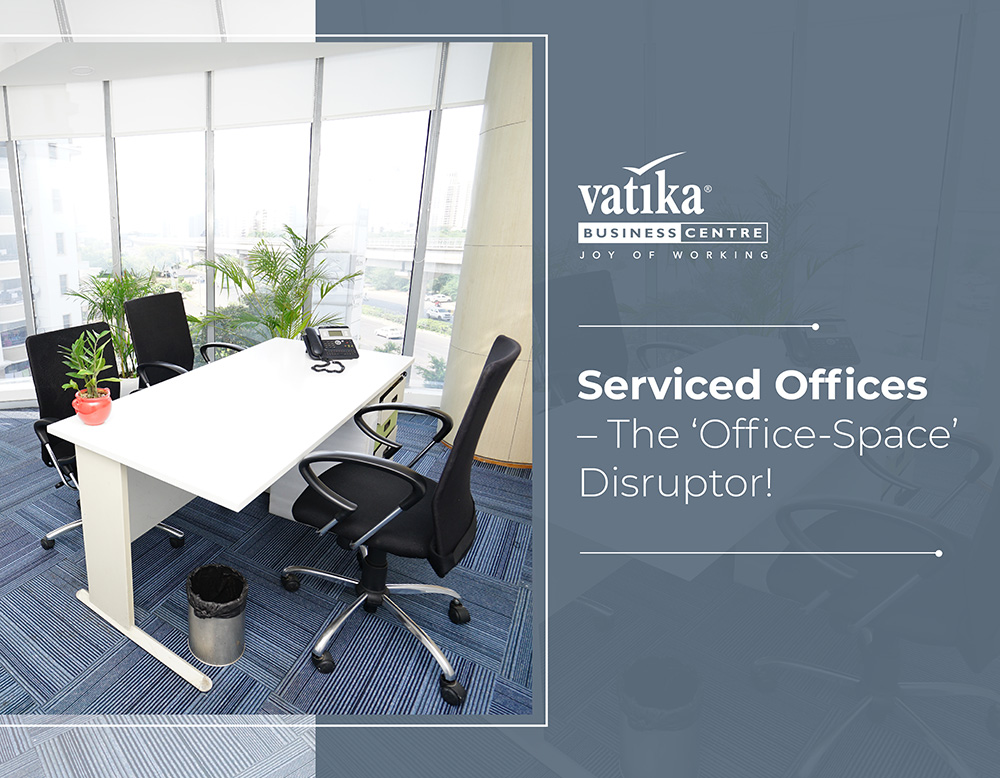In today’s fast-paced business world, companies are constantly seeking flexible and cost-effective solutions for their office space needs. This has led to a rise in the popularity of serviced offices.
Serviced office spaces have indeed disrupted the traditional office space model and have gained significant popularity in recent years. The impact that they have created on the commercial real estate industry and the way businesses operate can’t be ignored.
Serviced office spaces provide ergonomically designed, fully furnished and equipped offices on a pay-per-use or flexible lease basis. They typically offer a range of amenities and services, such as high-speed internet, meeting rooms, reception services, strong business support services, café (serving live cooked food) and communal areas.
The rise of serviced office spaces has been driven by several factors. First, they cater to the growing demand for flexibility and agility in the modern business landscape. Startups, freelancers, and even established companies are increasingly looking for office solutions that allow them to upscale or downscale quickly, adapt to changing market conditions, and avoid long-term commitments.
Second, serviced office spaces promote collaboration and networking among professionals from various industries. They often foster a sense of community and provide opportunities for knowledge sharing, partnerships, and talent acquisition. This collaborative environment has attracted entrepreneurs, remote workers, and companies seeking to tap into the benefits of a dynamic and diverse ecosystem.
Third, serviced office spaces offer cost advantages compared to traditional leased office spaces. With a flexible payment structure and shared resources, businesses can reduce their overhead costs, such as rent, utilities, and maintenance expenses. This affordability makes them particularly appealing to startups and small businesses with limited budgets.
Furthermore, Vatika Business Centre as a serviced office provider has always leveraged technology to enhance its offerings. We provide online booking systems, virtual office services, and advanced communication tools, enabling businesses to work seamlessly and remotely. This has become especially relevant post the pandemic, as remote work and distributed teams have become more prevalent.
For many companies and professionals, serviced office spaces have provided a flexible, cost-effective, and collaborative alternative to traditional offices, making them a significant disruptor in the way we work.
Are they better than flexible office spaces?
It’s worth noting that Serviced Office Spaces typically imply a more comprehensive offering that includes additional services and amenities, while Flexible Office Spaces may refer to a lesser broader range of options.
In serviced office spaces, tenants typically have access to fully furnished and equipped offices or workstations, along with various amenities such as reception services, meeting rooms, and communal areas. The service provider takes care of facilities management, maintenance, and other administrative tasks. This all-inclusive approach can be beneficial for businesses that value convenience and want a turnkey solution.
On the other hand, flexible office spaces encompass a wider spectrum of options. Flexible office spaces may offer varying levels of services and amenities, depending on the provider and the specific package chosen. They often provide a more customizable approach, allowing businesses to select the services and features that best suit their needs and budget. But they all lack Business Privacy which Serviced Office Spaces have to offer.
Whether serviced office spaces or flexible office spaces are better depends on the specific requirements and preferences of each business. Here are some factors to consider when evaluating which option is more suitable:
1. Services and amenities: Serviced office spaces generally provide a comprehensive set of services and amenities, whereas flexible office spaces may offer a more à la carte approach. Consider which services and amenities are essential for your business and compare them with what each option offers.
2. Privacy and branding: Depending on your business needs, you may prioritize having a dedicated, private space or the ability to showcase your branding. Serviced office spaces often offer more privacy options, while flexible office spaces, especially coworking spaces, are typically more open and shared.
3. Cost: Serviced office spaces typically come with a higher price tag due to the bundled services and convenience they provide. Flexible office spaces, especially shared coworking spaces, can often be more cost-effective. Evaluate your budget and cost considerations to determine the best fit.
4. Flexibility: Both serviced office spaces and flexible office spaces offer flexibility compared to traditional office leases. However, consider the level of flexibility you require in terms of lease terms, scalability, and the ability to customize your workspace.
Ultimately, it’s important to assess your specific needs, budget, and preferences when choosing between serviced office spaces and flexible office spaces. Carefully evaluate the offerings, costs, and flexibility provided by different providers to make an informed decision that aligns with your business objectives.

